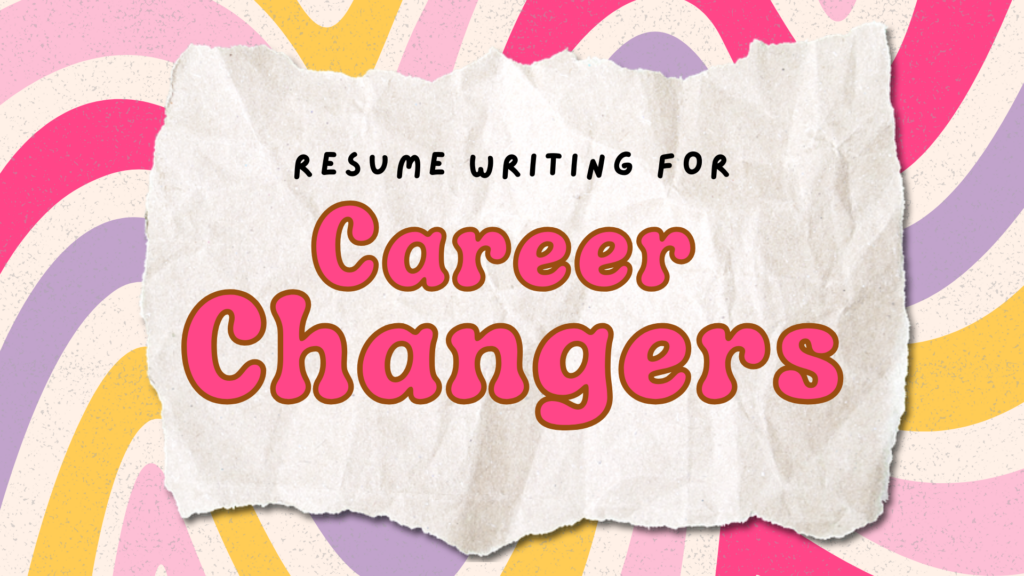
Transitioning into a new career can feel overwhelming, especially when you need to showcase your value in a field where you may not have direct experience. However, one of the most powerful tools at your disposal is highlighting transferable skills—those abilities and experiences that are relevant across different roles and industries. Here’s how you can make sure your resume clearly demonstrates your readiness for a new career path.
1. Identify Your Transferable Skills
Transferable skills are competencies you’ve gained from past roles that can be applied in a new context. Start by reviewing the job descriptions in your target field and identifying common skills mentioned. Then, reflect on your previous experiences to find where you’ve demonstrated these skills. Common transferable skills include:
- Communication: Written and verbal communication, listening skills, and public speaking
- Project management: Leading projects, setting timelines, and ensuring deliverables
- Problem-solving: Analyzing challenges and finding creative solutions
- Leadership: Managing teams, mentoring colleagues, or spearheading initiatives
- Adaptability: Thriving in different environments, handling change, or learning new technologies
- Time management: Prioritizing tasks, meeting deadlines, and managing multiple responsibilities
These skills are in high demand in nearly every industry and can be your bridge into a new role.
2. Reframe Your Work Experience
Once you’ve identified your transferable skills, the next step is to reframe your past work experience to highlight those relevant competencies. Instead of focusing solely on your job title or industry, emphasize the responsibilities and accomplishments that showcase the skills you’ll bring to your new field.
For example, if you’re moving from sales to project management, your ability to manage client relationships, hit sales targets, and coordinate with different departments are all project management-related skills. Rewriting your experience to focus on these skills can demonstrate your potential for success in the new role.
Before:
“Managed client accounts and exceeded monthly sales targets by 20%.”
After:
“Led cross-functional teams to deliver customized solutions for clients, ensuring projects were completed on time and within scope, resulting in a 20% increase in client satisfaction.”
By tweaking the language to focus on skills like leadership, project management, and client coordination, your experience becomes more relevant to a project management role.
3. Use a Functional or Hybrid Resume Format
A traditional chronological resume emphasizes job titles and work history, which might not be as helpful when switching careers. Instead, consider using a functional or hybrid resume format.
- Functional resume: This format focuses on skills rather than job titles. You’ll have a section dedicated to transferable skills, followed by a brief work history section.
- Hybrid resume: This format combines elements of both chronological and functional resumes. It highlights your skills upfront while still providing a reverse-chronological work history for context.
These formats allow you to emphasize your most relevant
4. Highlight Achievements Using Transferable Skills
Numbers and specific accomplishments make your skills more tangible. Whenever possible, quantify your achievements to show the impact of your transferable skills in previous roles. Metrics such as percentages, dollar amounts, or time saved can help hiring managers understand how your skills translate to real results.
For example, if you’re moving from an administrative role into marketing, consider how your organizational and project management skills contributed to outcomes like improving team productivity or streamlining operations.
Example:
“Coordinated the logistics for company-wide events, reducing planning time by 30% and saving $10,000 in vendor costs.”
This statement emphasizes project management, organizational, and budgeting skills, which are crucial in many marketing roles.
5. Showcase Learning and Development
When transitioning into a new career, employers want to see your commitment to growing in your new field. Use your resume to highlight any certifications, online courses, or training programs you’ve completed that are relevant to the industry.
Example:
“Completed Google Analytics Certification to enhance digital marketing skills and gain insights into campaign performance analysis.”
This demonstrates that you’re proactive about developing the skills needed for your new career, which can make you a more attractive candidate, even without direct experience.
6. Customize Your Resume for Each Application
One of the most important steps in any job search is tailoring your resume to the specific job you’re applying for. Career changers, in particular, should carefully review each job posting and adjust their resume to highlight the skills and experiences that are most relevant to the position. Use the job description to guide how you frame your transferable skills.
For example, if the job emphasizes teamwork and collaboration, make sure your resume highlights examples of when you worked successfully with others to achieve a goal.
7. Include a Career Change Summary or Objective
At the top of your resume, include a brief career change summary or objective statement to explain why you’re transitioning careers and what you bring to the table. This section should focus on your transferable skills and what makes you a strong candidate for the role.
Example:
“Detail-oriented project manager with 8+ years of experience leading cross-functional teams in the sales industry. Seeking to leverage strong communication, problem-solving, and leadership skills in a new role as a marketing coordinator.”
This helps frame your resume, giving context to your career change and focusing on the value you bring to the new role.
Conclusion
Switching careers can be daunting, but your transferable skills are your greatest asset. By reframing your experience, using the right resume format, and showcasing your achievements, you can effectively demonstrate your potential in a new industry. Remember, your unique combination of skills and experiences is what sets you apart—so craft your resume to make those transferable skills shine.
If you’re unsure how to navigate this transition or need a professionally written resume, working with a career coach can help position you for success.
Ready to update your resume and optimize your LinkedIn profile?
Reach out today! www.resumeassassin.com or mary@resumeassassin.com
Connect on LinkedIn: www.linkedin.com/in/mary-southern
Schedule a 15 Minute Call: https://calendly.com/resumeassassin/meet
